AHA Scientific Sessions 2023 Late-Breaking Science Coverage
Published: 30 October 2023
-
Views:
 2421
2421
-
Likes:
 7
7
-
Views:
 2421
2421
-
Likes:
 7
7
-
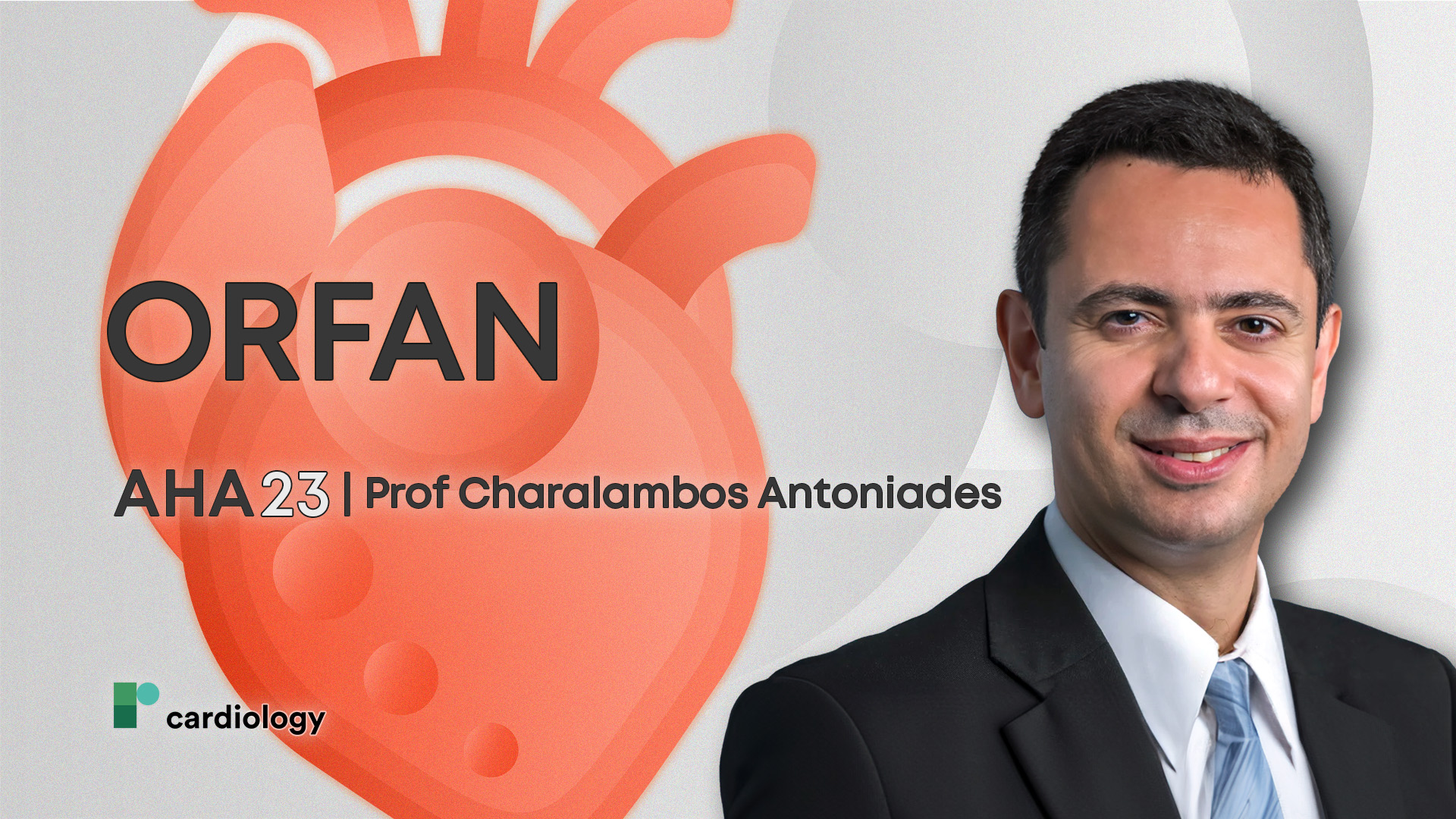 Up Next
Up Next -
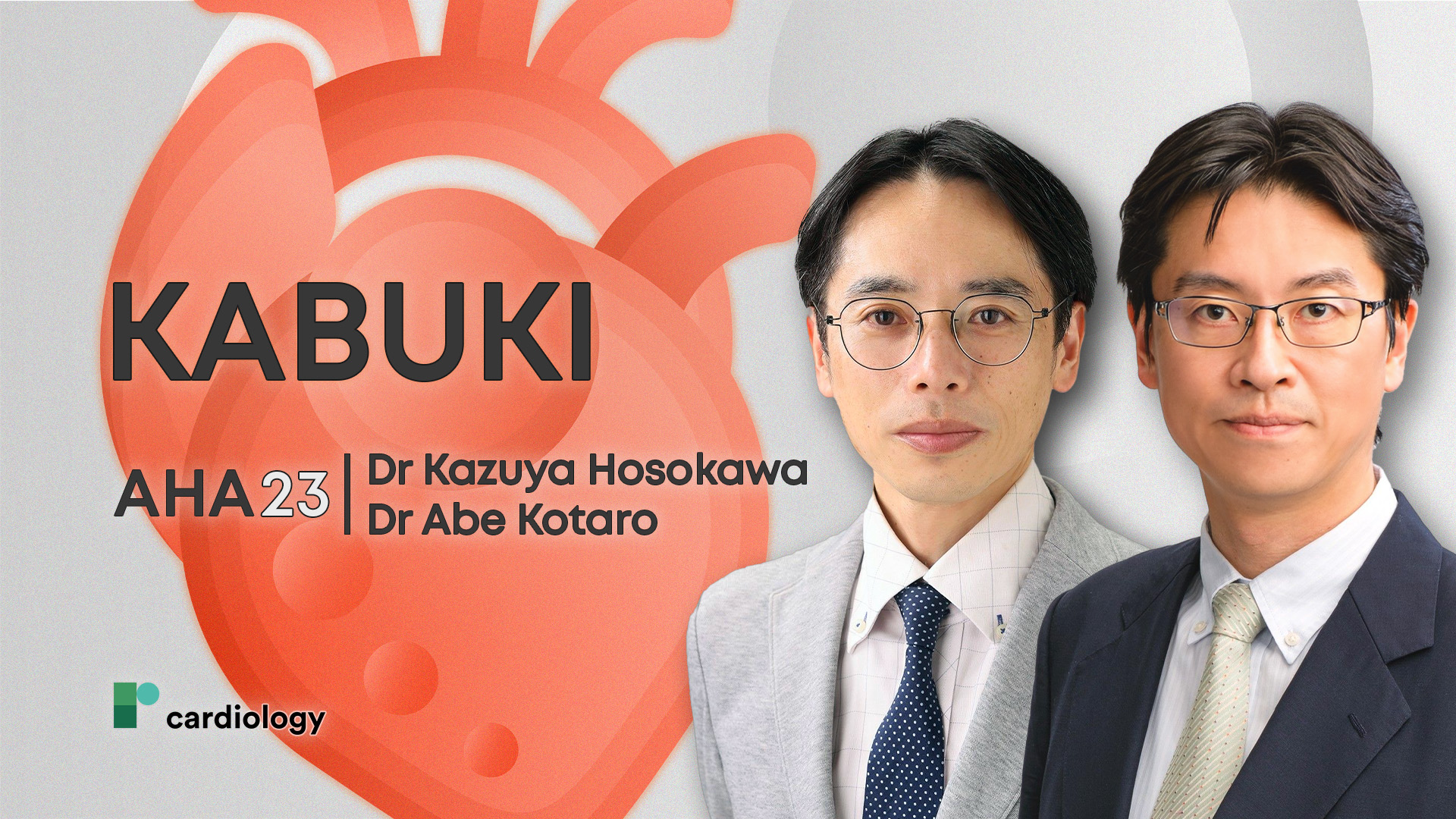 6m 55s
6m 55s -
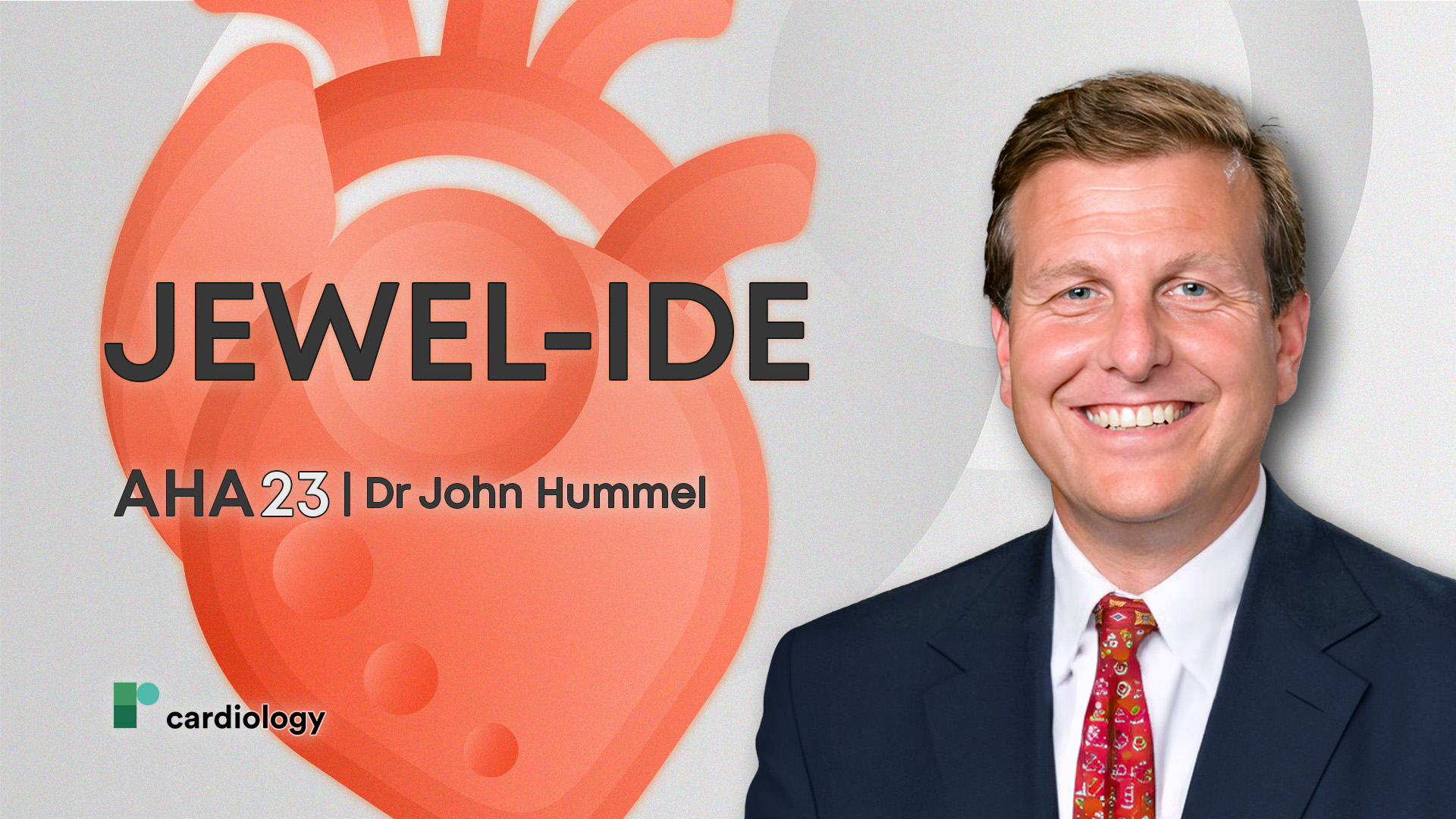 10m 9sPart 3 | Session 9 JEWEL-IDE: Jewel P-WCD in Pts at High Risk of Cardiac Arrest
10m 9sPart 3 | Session 9 JEWEL-IDE: Jewel P-WCD in Pts at High Risk of Cardiac Arrest -
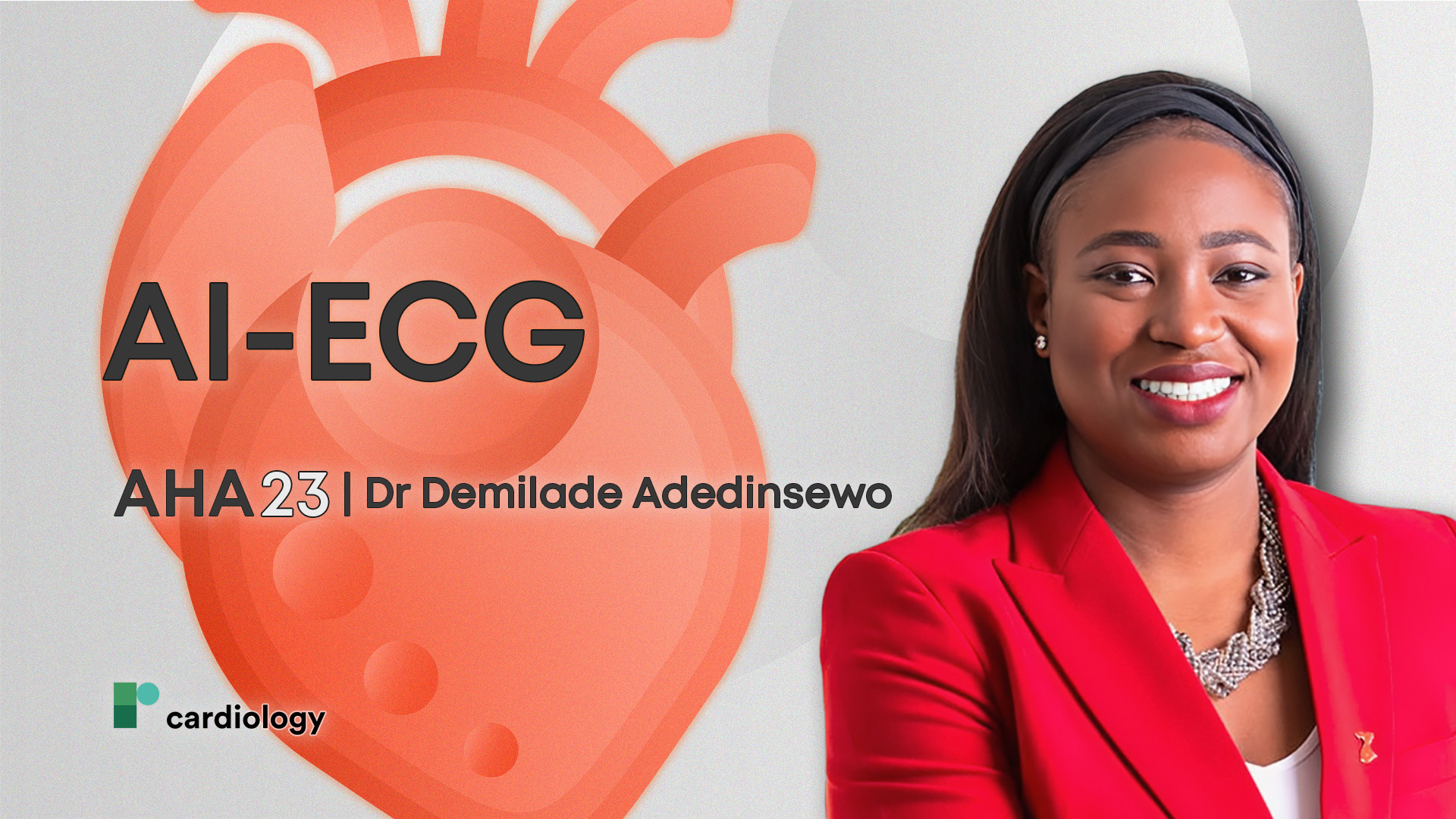 4m 59s
4m 59s -
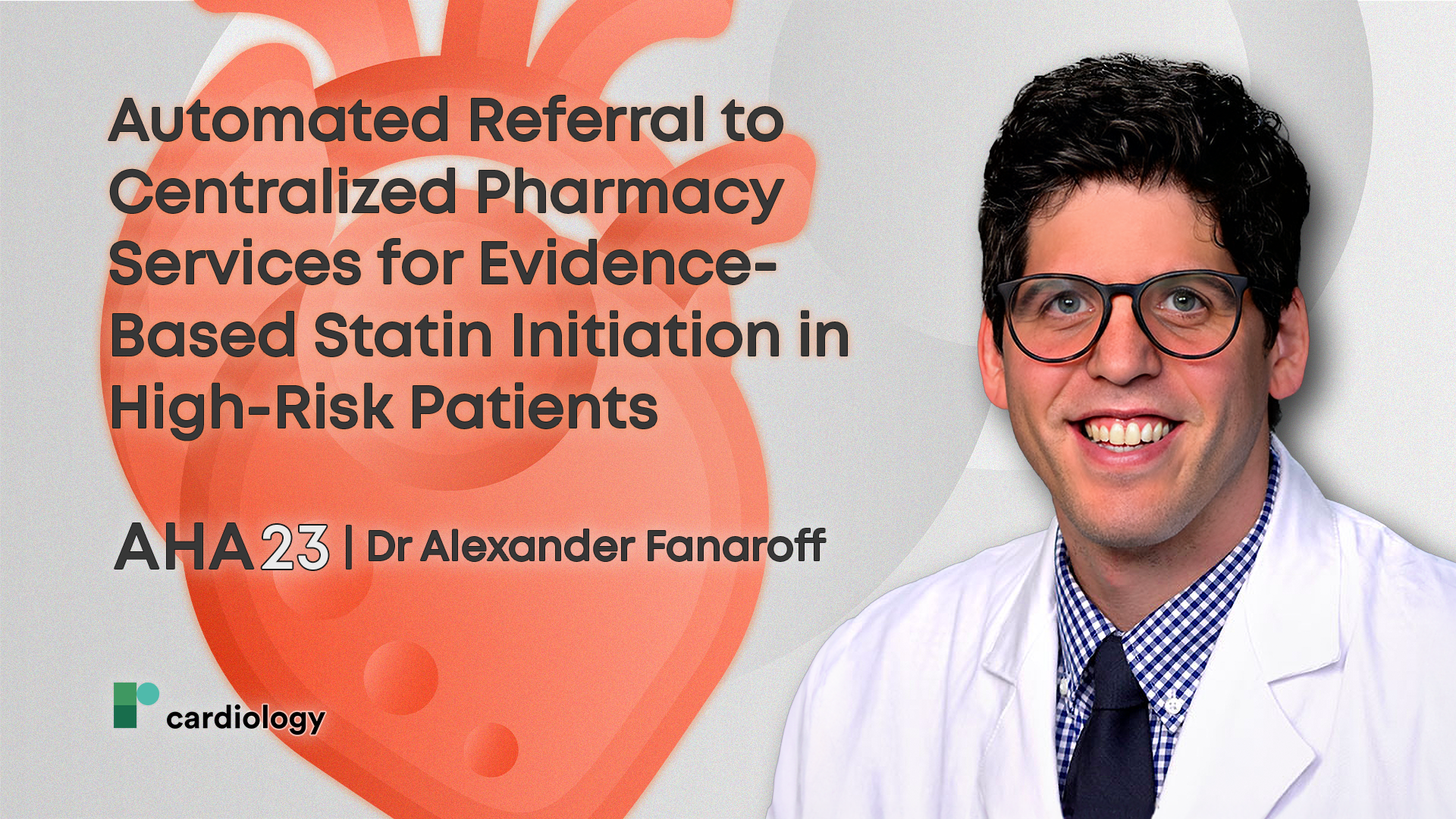 5m 4s
5m 4s
-
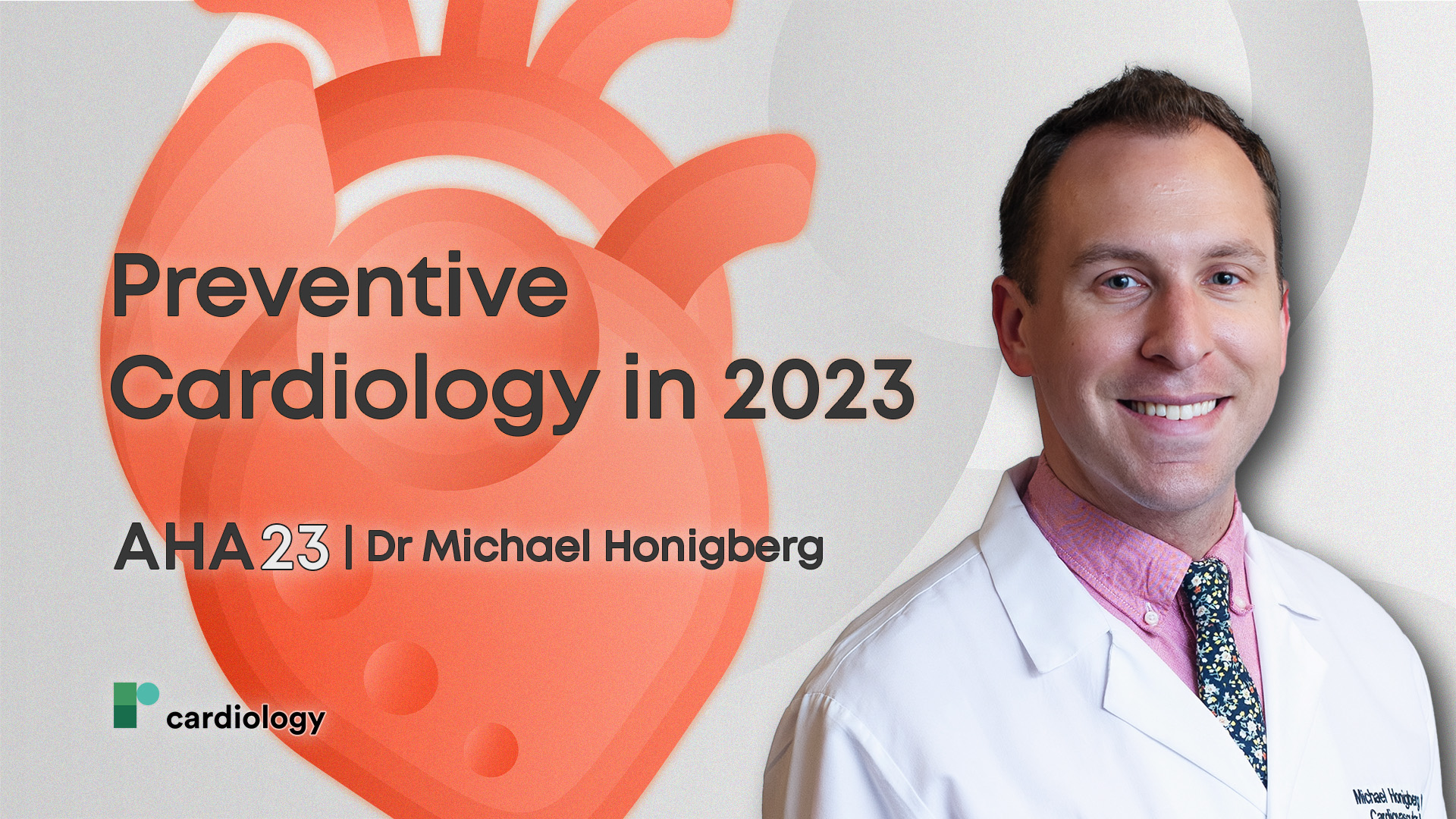 7m 3sPart 4 | Session 1 Preventive Cardiology Highlights in 2023
7m 3sPart 4 | Session 1 Preventive Cardiology Highlights in 2023 -
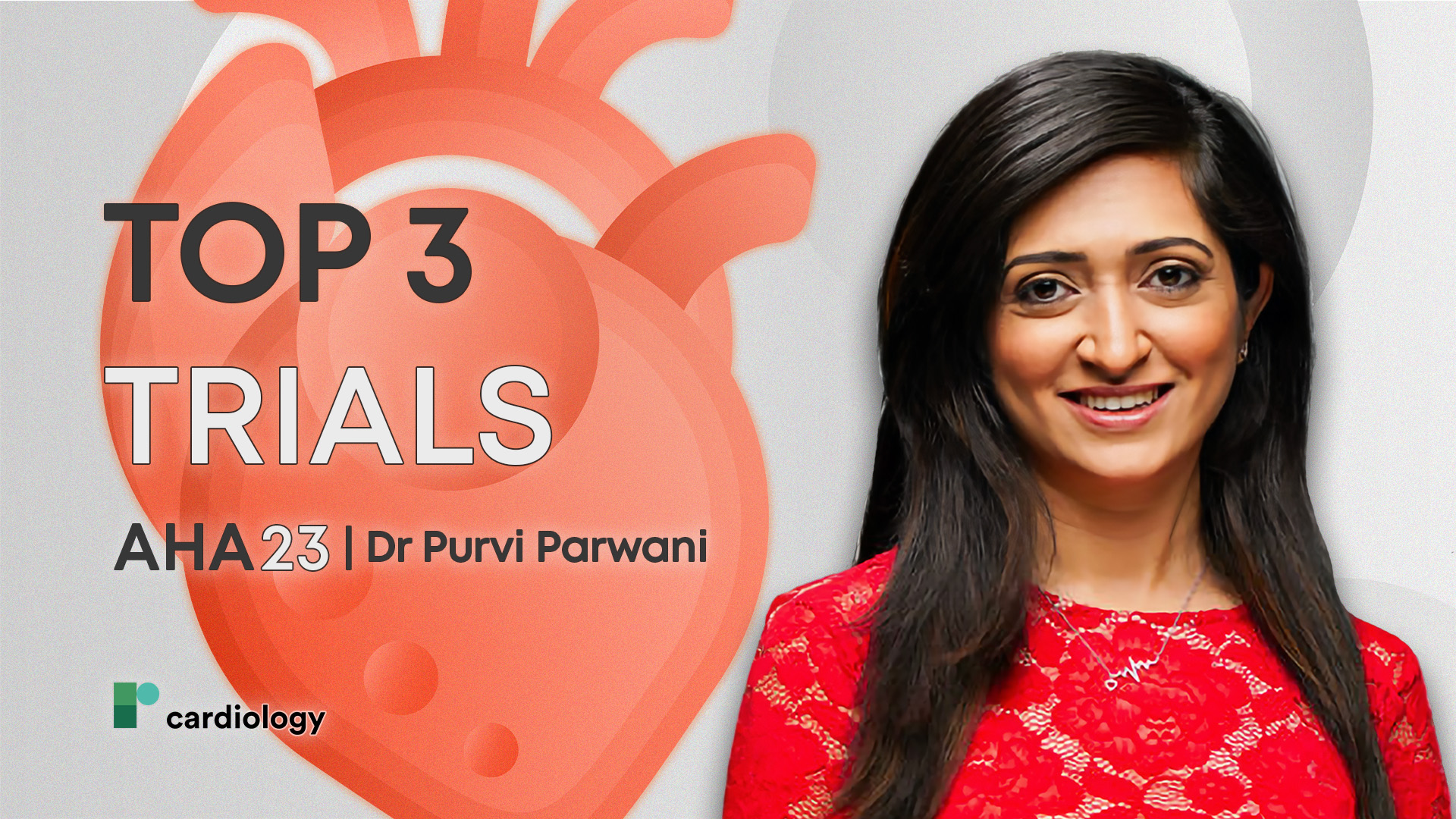 10m 59sPart 4 | Session 2 3 Trials That Will Change My Practice With Dr Parwani
10m 59sPart 4 | Session 2 3 Trials That Will Change My Practice With Dr Parwani -
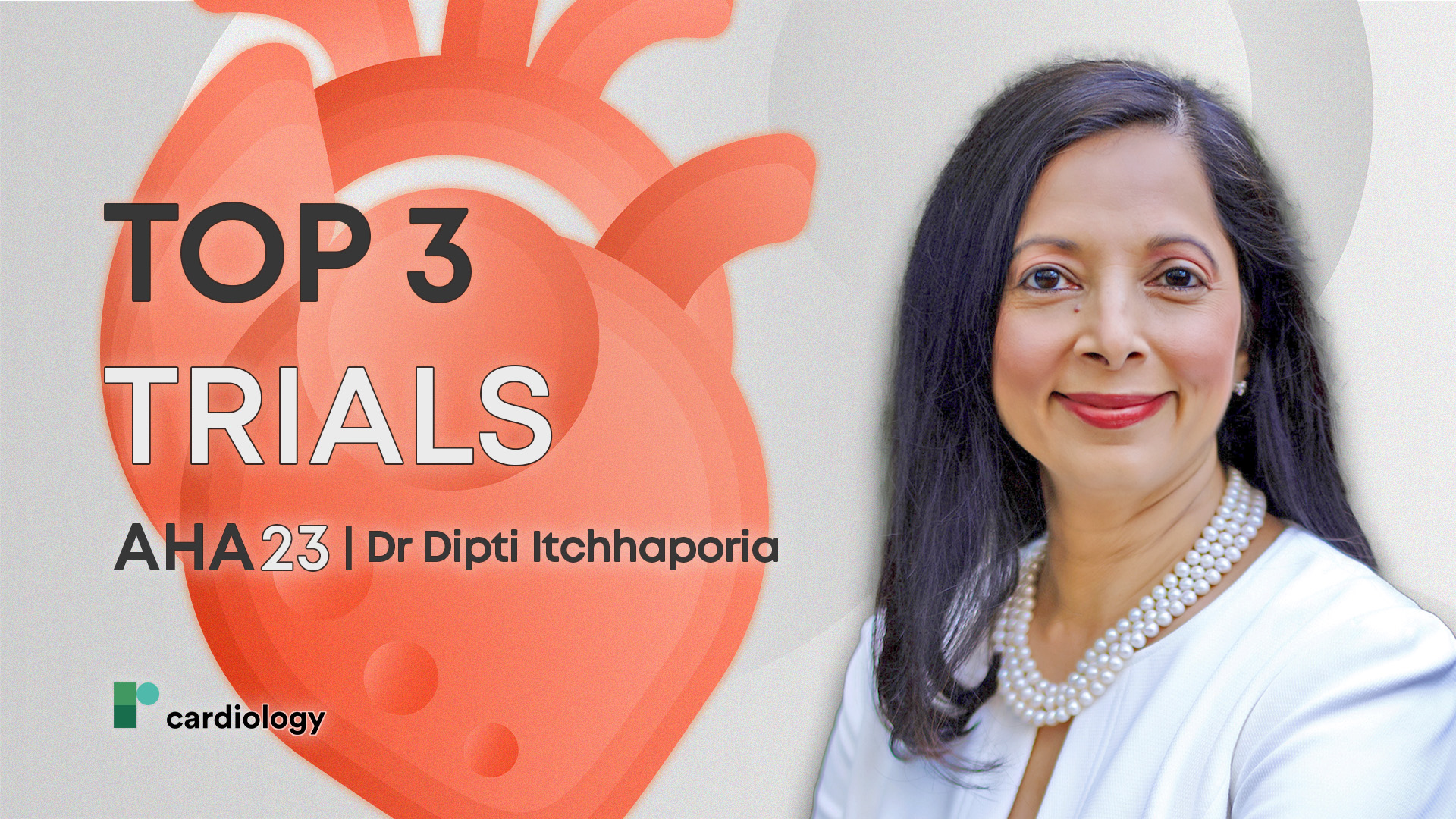 7m 20sPart 4 | Session 3 3 Trials That Will Change My Practice With Dr Itchhaporia
7m 20sPart 4 | Session 3 3 Trials That Will Change My Practice With Dr Itchhaporia
-
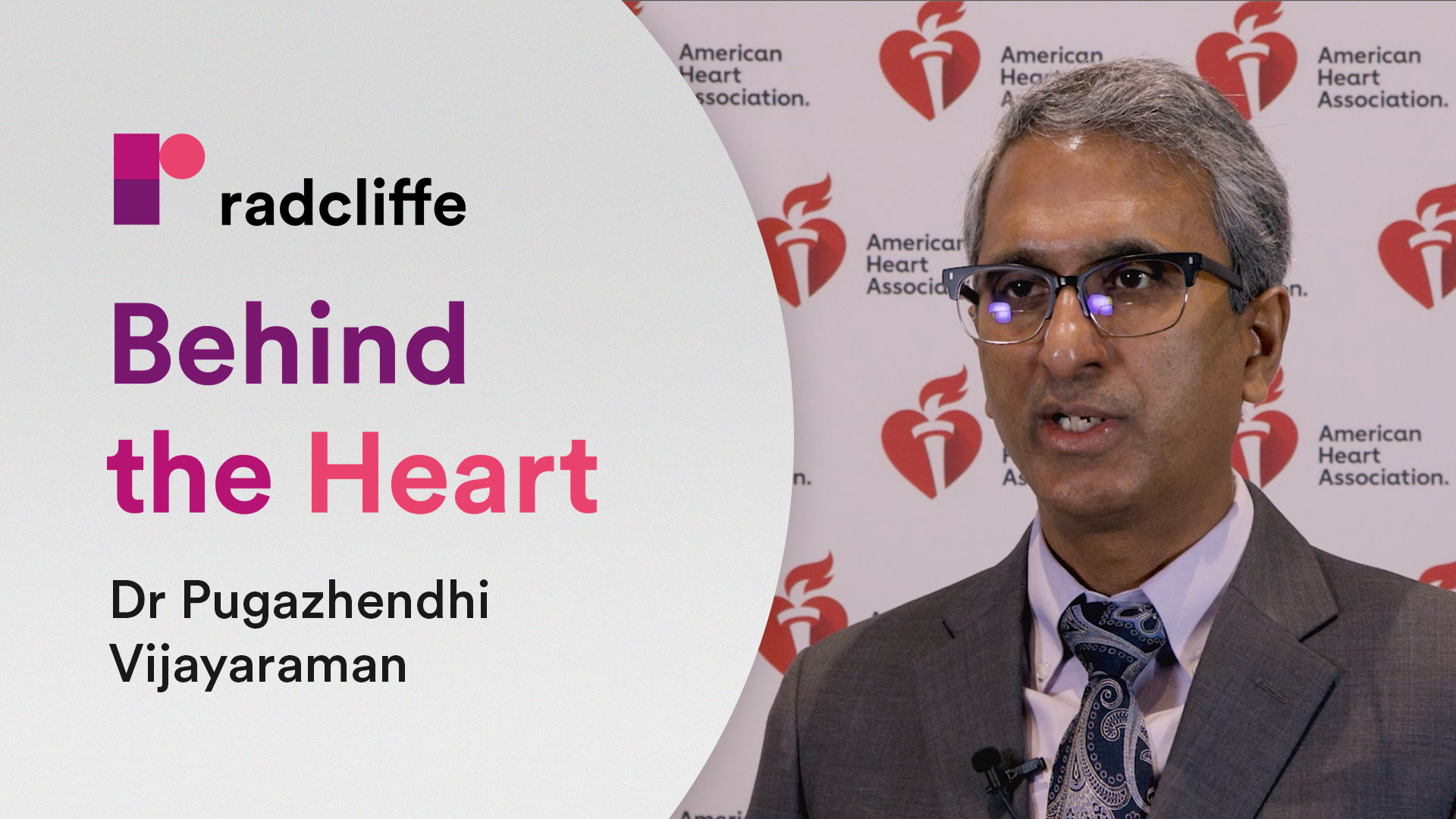 2mPart 5 | Session 1 Solving Problems with Dr Pugazhendi Vijayaraman
2mPart 5 | Session 1 Solving Problems with Dr Pugazhendi Vijayaraman -
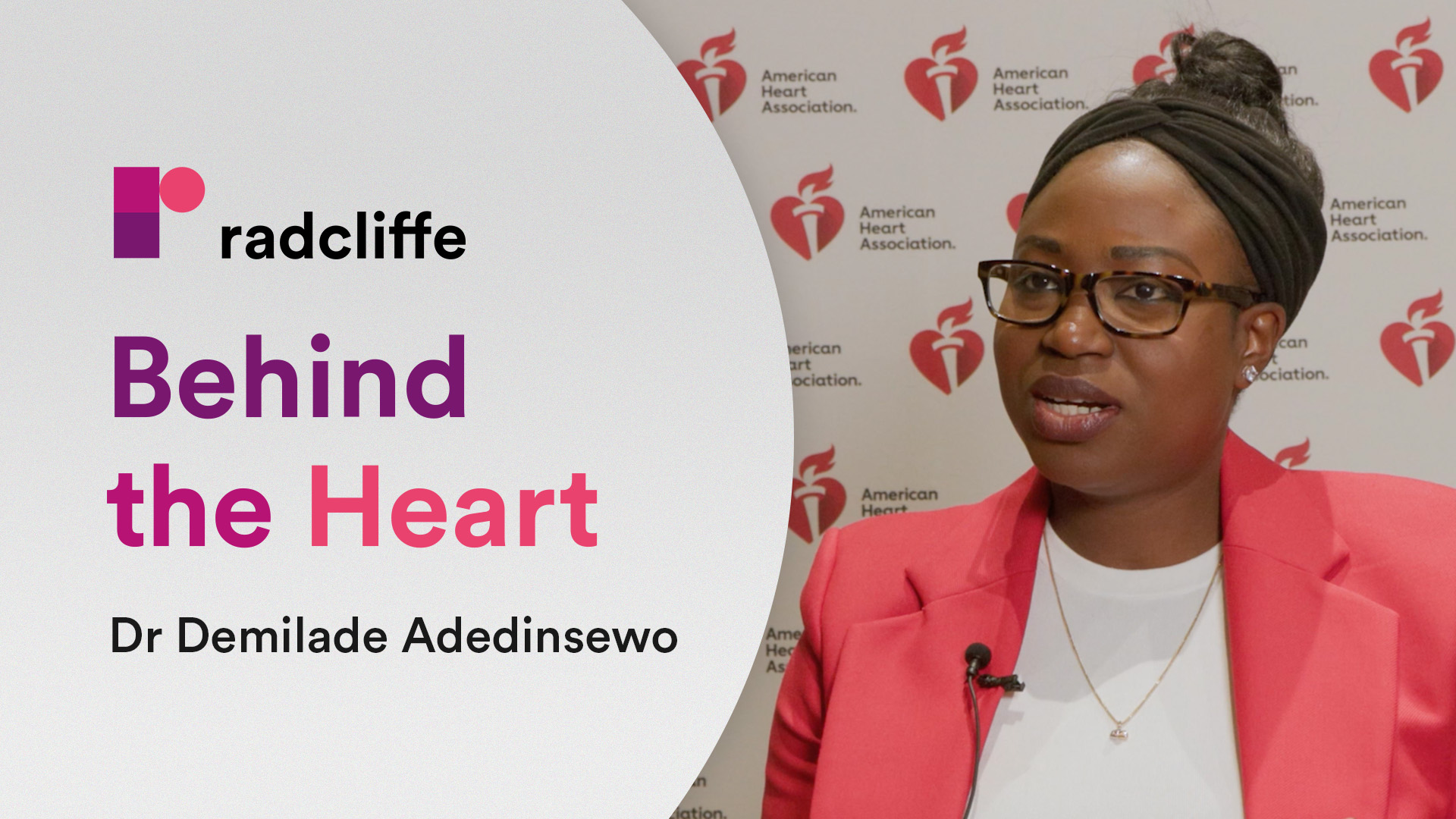 1m 36sPart 5 | Session 2 Advice for Early-Career Researchers With Dr Demilade Adedinsewo
1m 36sPart 5 | Session 2 Advice for Early-Career Researchers With Dr Demilade Adedinsewo -
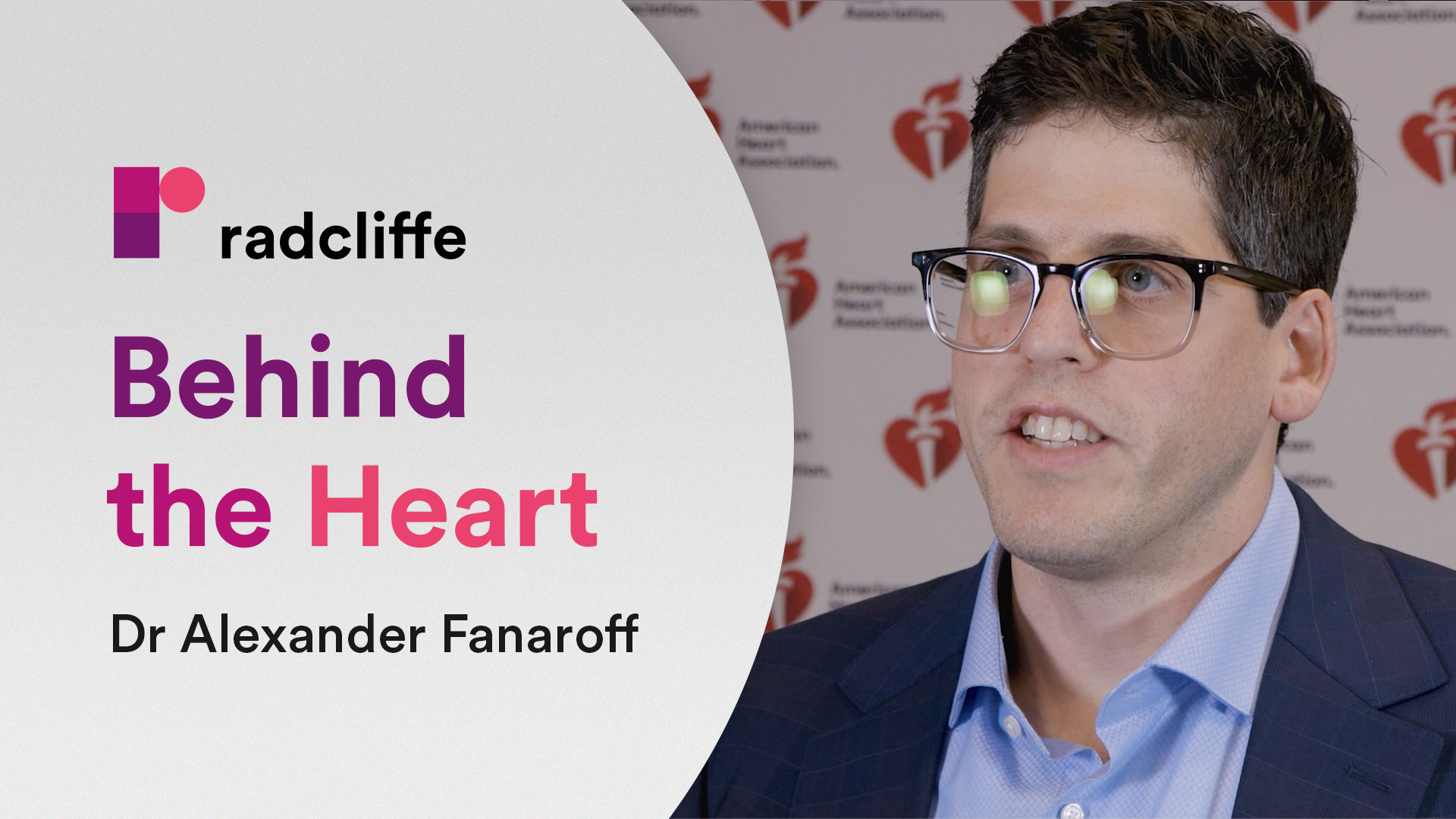 39sPart 5 | Session 3 Making a Difference with Dr Alexander Fanaroff
39sPart 5 | Session 3 Making a Difference with Dr Alexander Fanaroff
-
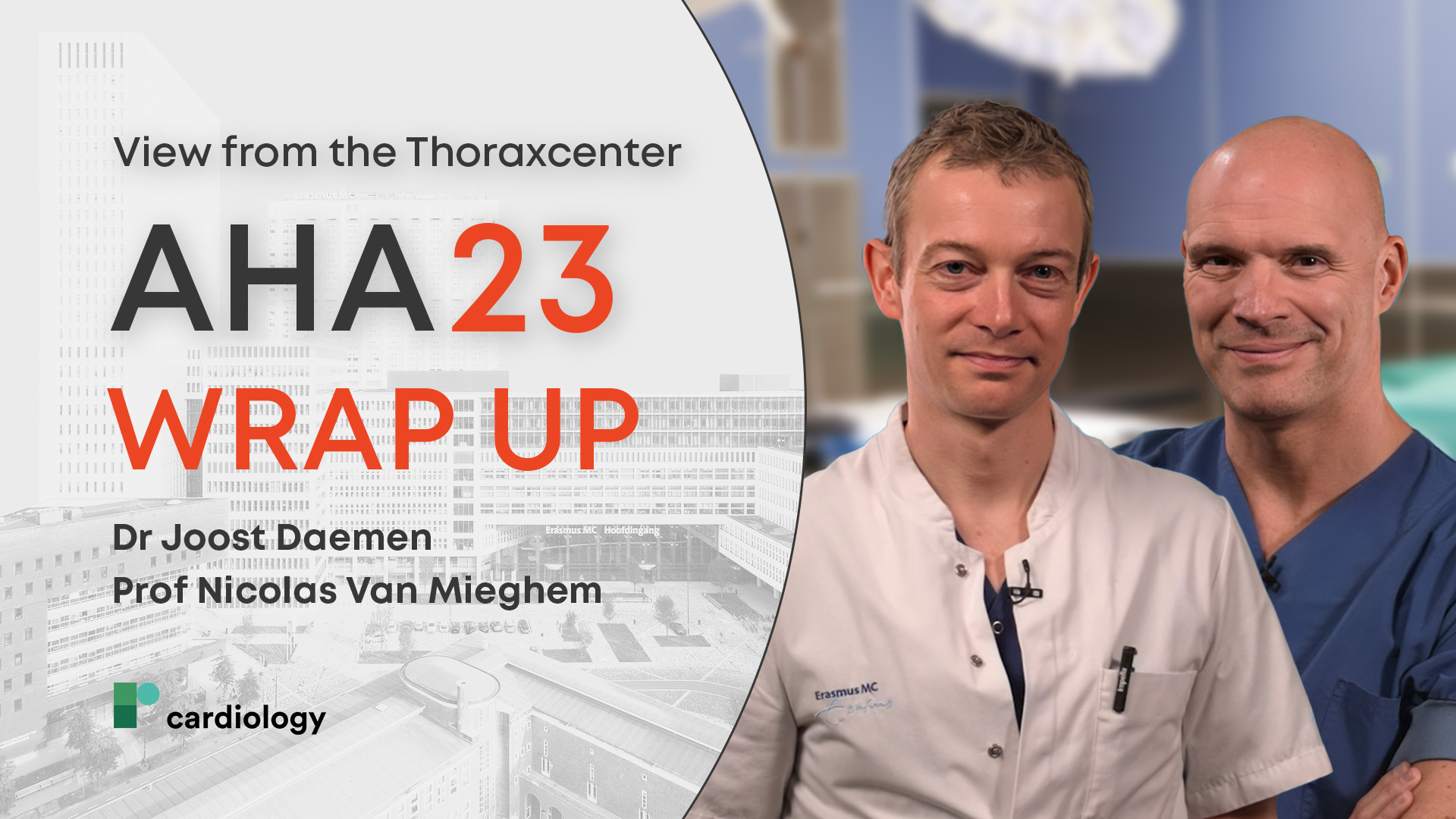 23m 13sPart 1 | Session 1 View from the Thoraxcenter: AHA 23 Late-breaking Science Wrap Up Nicolas M Van Mieghem, Joost Daemen
23m 13sPart 1 | Session 1 View from the Thoraxcenter: AHA 23 Late-breaking Science Wrap Up Nicolas M Van Mieghem, Joost Daemen
-
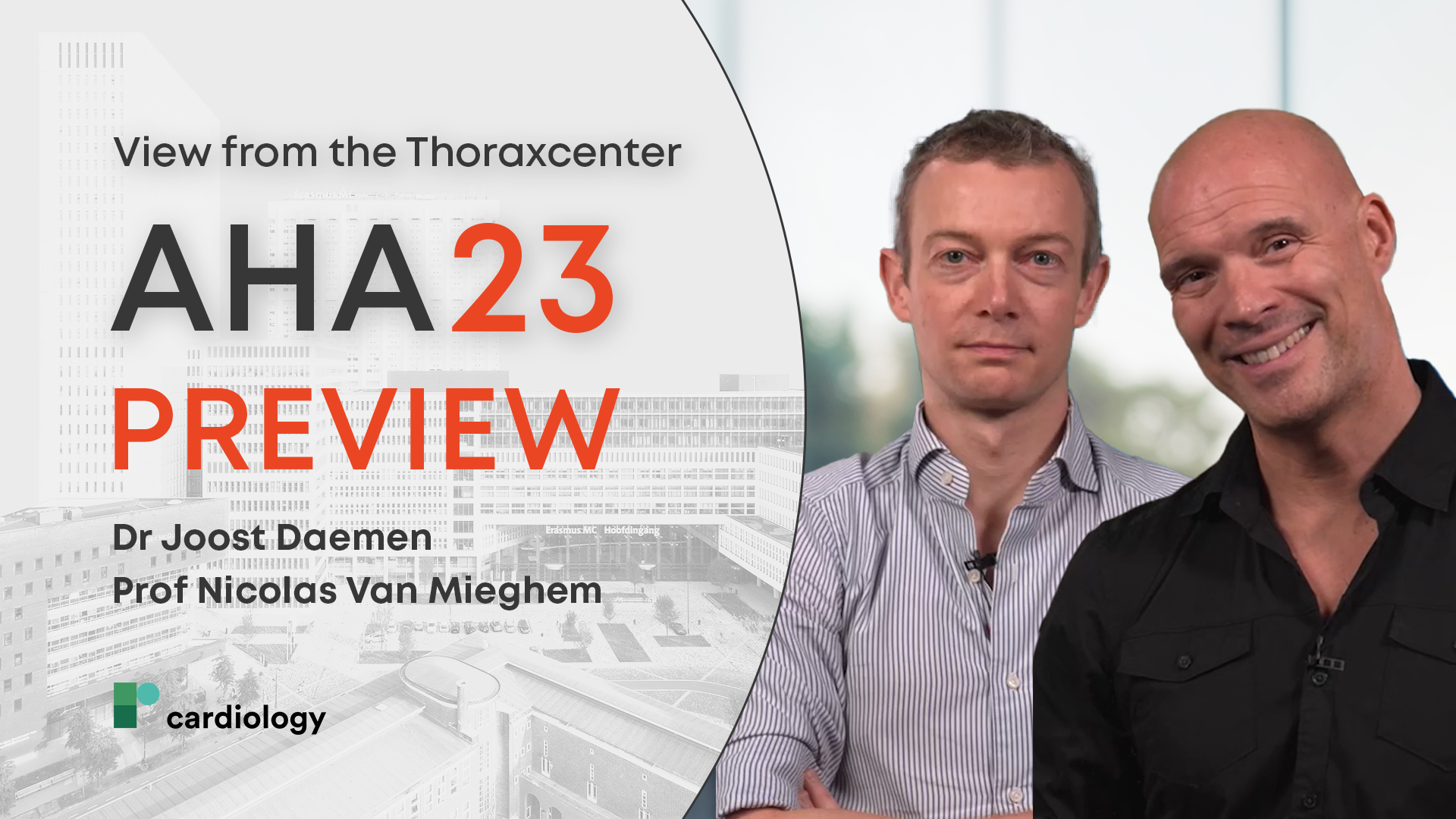 12m 34sPart 1 | Session 2 View from the Thoraxcenter: AHA 23 Late-breaking Science Preview Nicolas M Van Mieghem, Joost Daemen
12m 34sPart 1 | Session 2 View from the Thoraxcenter: AHA 23 Late-breaking Science Preview Nicolas M Van Mieghem, Joost Daemen
-
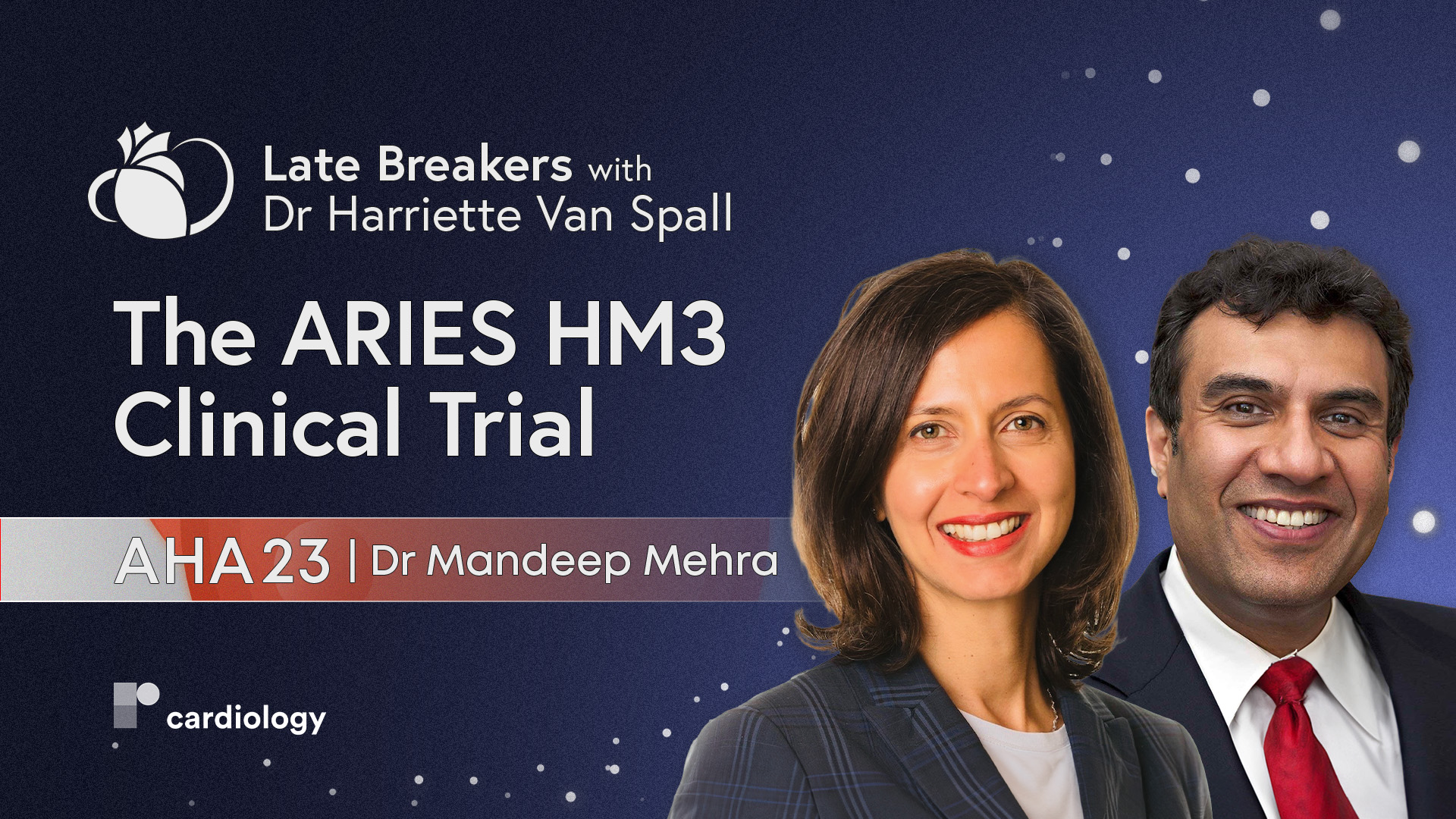 22m 30sPart 2 | Session 1 AHA 23 Late-Breaker Discussion: The ARIES HM3 Clinical Trial Mandeep Mehra, Harriette Van Spall
22m 30sPart 2 | Session 1 AHA 23 Late-Breaker Discussion: The ARIES HM3 Clinical Trial Mandeep Mehra, Harriette Van Spall
-
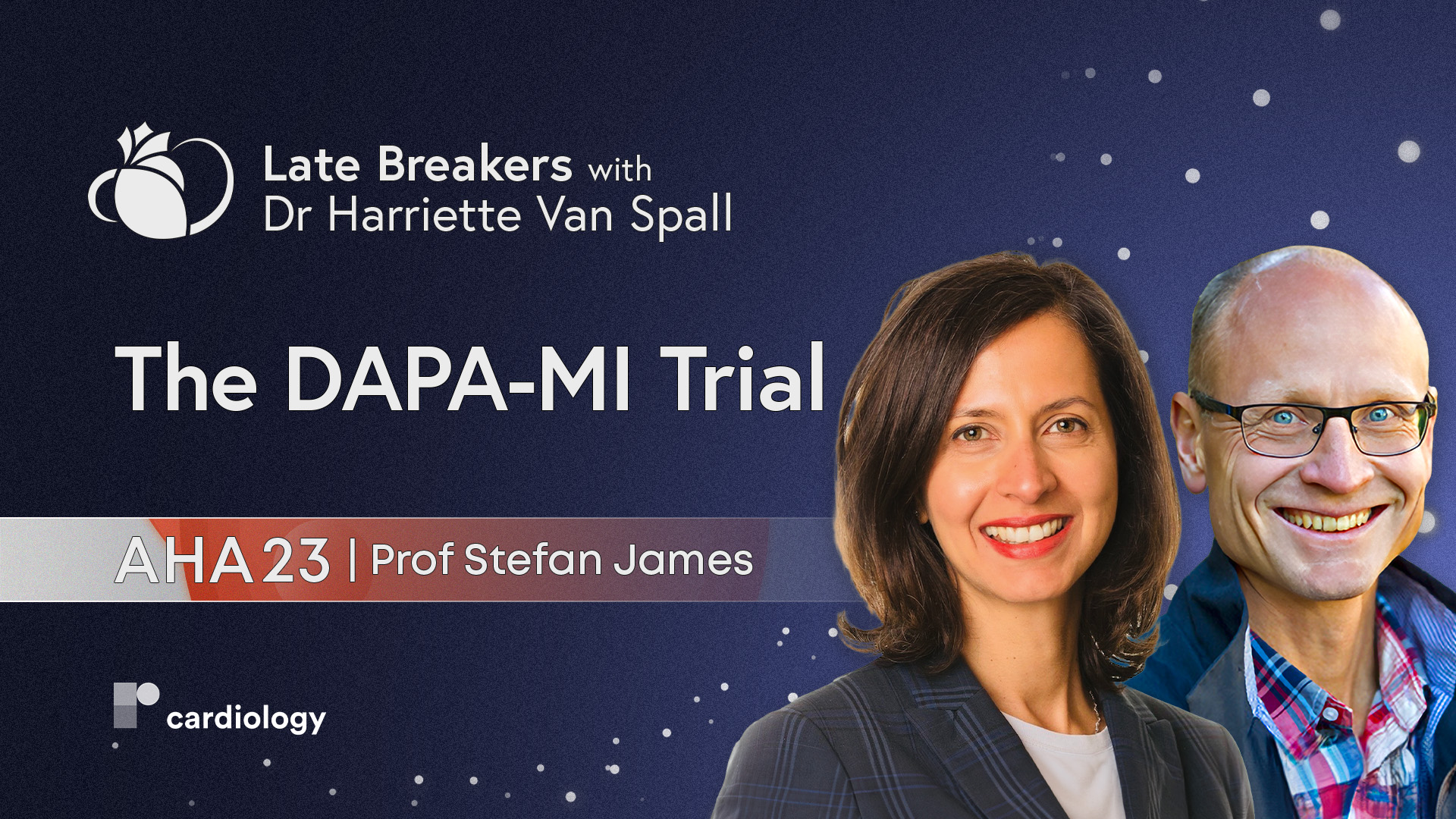 14m 14sPart 2 | Session 2 AHA 23 Late-Breaker Discussion: The DAPA-MI Trial Harriette Van Spall, Stefan James, Jonas Oldgren
14m 14sPart 2 | Session 2 AHA 23 Late-Breaker Discussion: The DAPA-MI Trial Harriette Van Spall, Stefan James, Jonas Oldgren
-
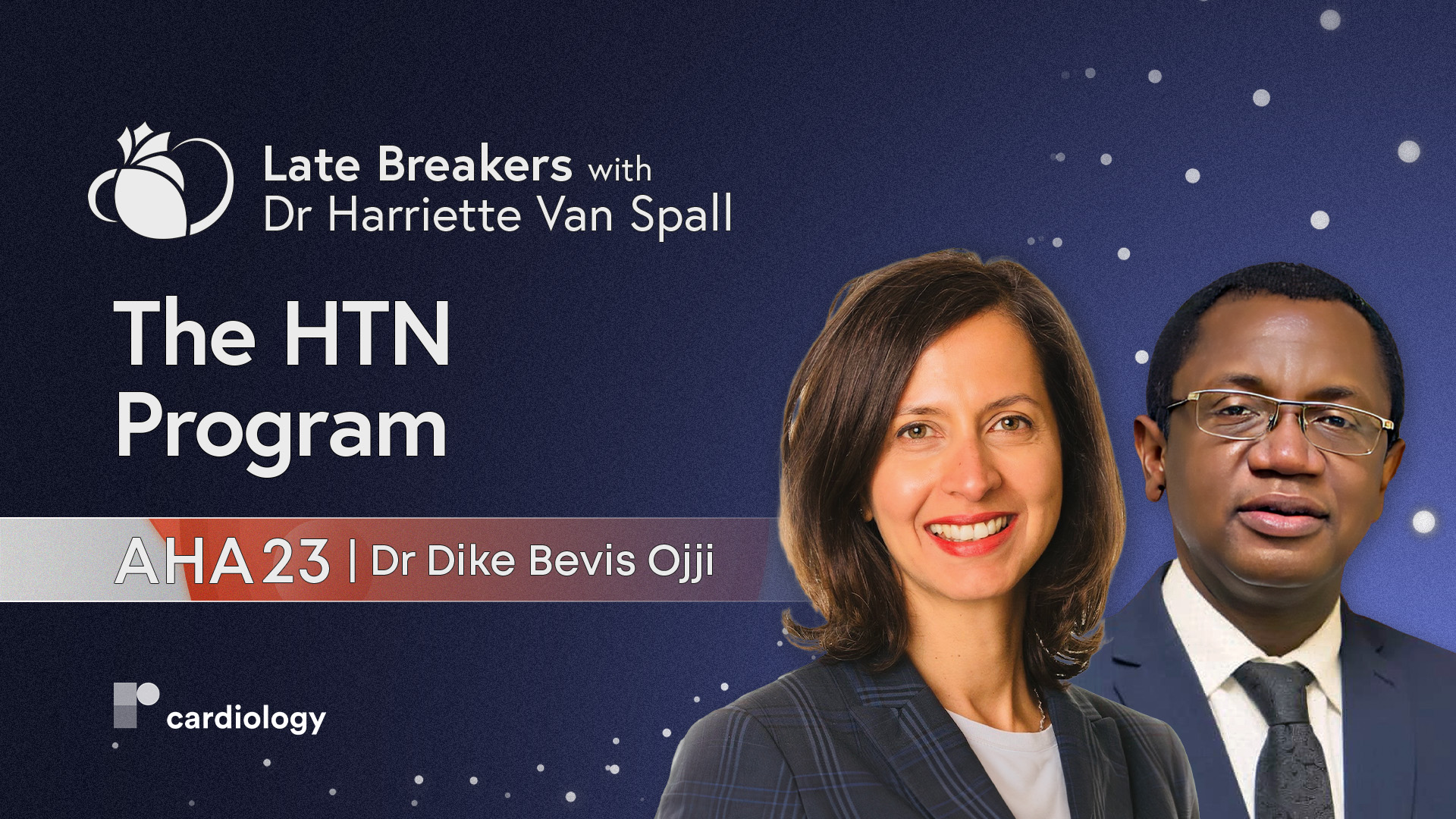 19m 41sPart 2 | Session 3 AHA 23 Late-Breaker Discussion: Hypertension Treatment in Nigeria Program Harriette Van Spall, Dike Bevis Ojji
19m 41sPart 2 | Session 3 AHA 23 Late-Breaker Discussion: Hypertension Treatment in Nigeria Program Harriette Van Spall, Dike Bevis Ojji
-
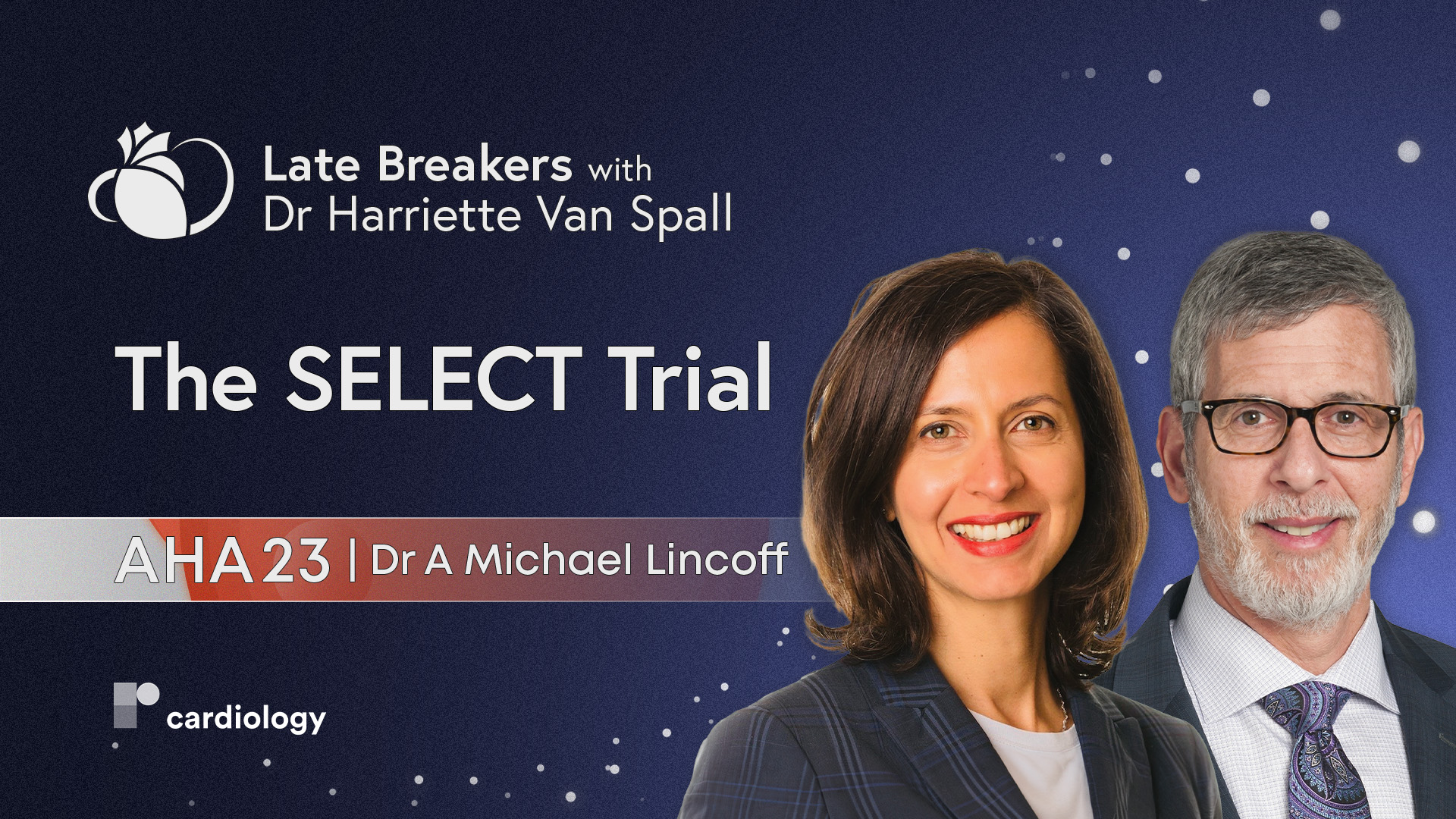 21m 35sPart 2 | Session 4 AHA 23 Late-Breaker Discussion: The SELECT Trial A Michael Lincoff , Harriette Van Spall
21m 35sPart 2 | Session 4 AHA 23 Late-Breaker Discussion: The SELECT Trial A Michael Lincoff , Harriette Van Spall
-
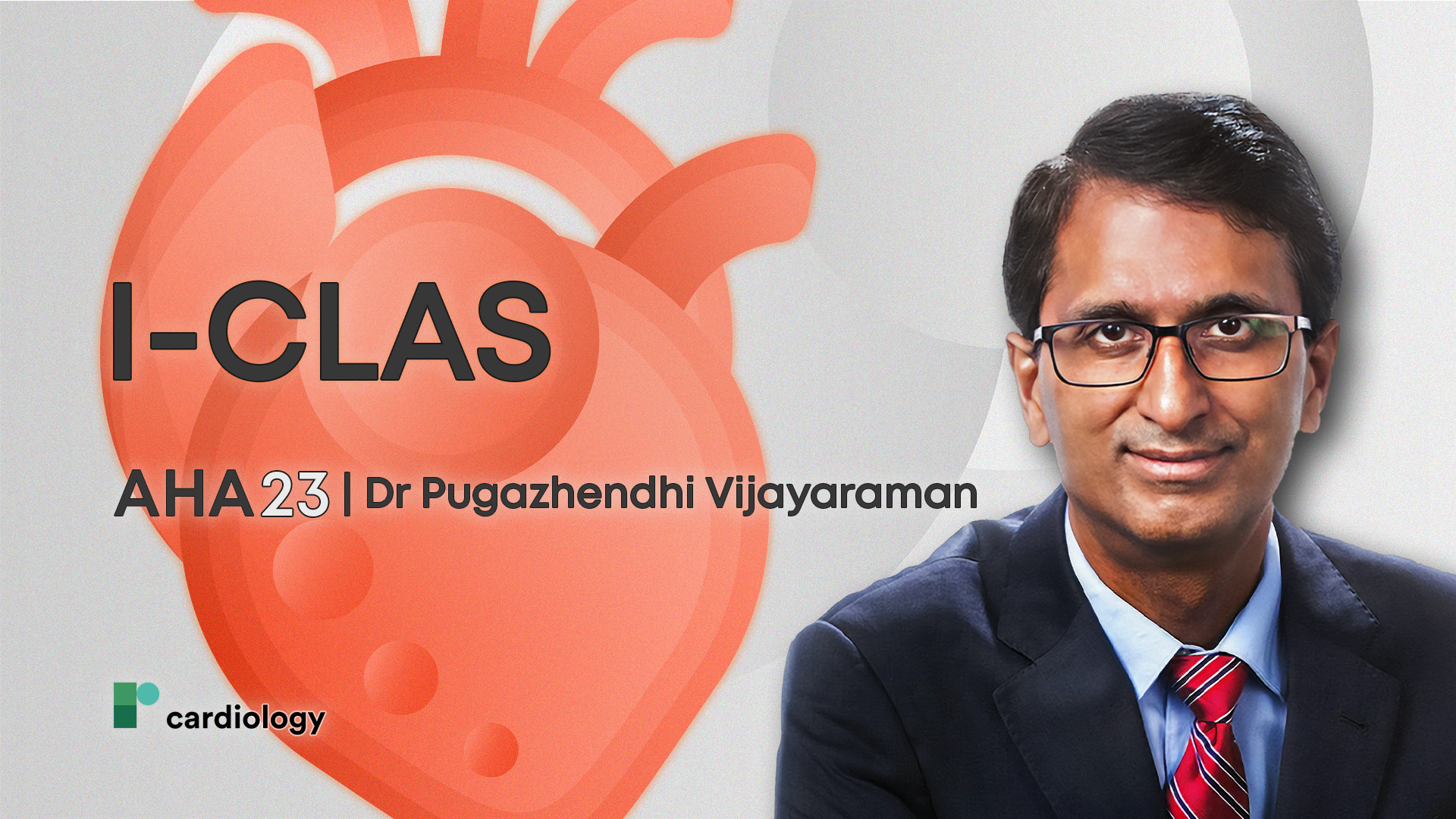 3m 11sPart 3 | Session 1 I-CLAS: Arrhythmic Risk in Biventricular Pacing Vs Left Bundle Branch Area Pacing Pugazhendhi Vijayaraman
3m 11sPart 3 | Session 1 I-CLAS: Arrhythmic Risk in Biventricular Pacing Vs Left Bundle Branch Area Pacing Pugazhendhi Vijayaraman
-
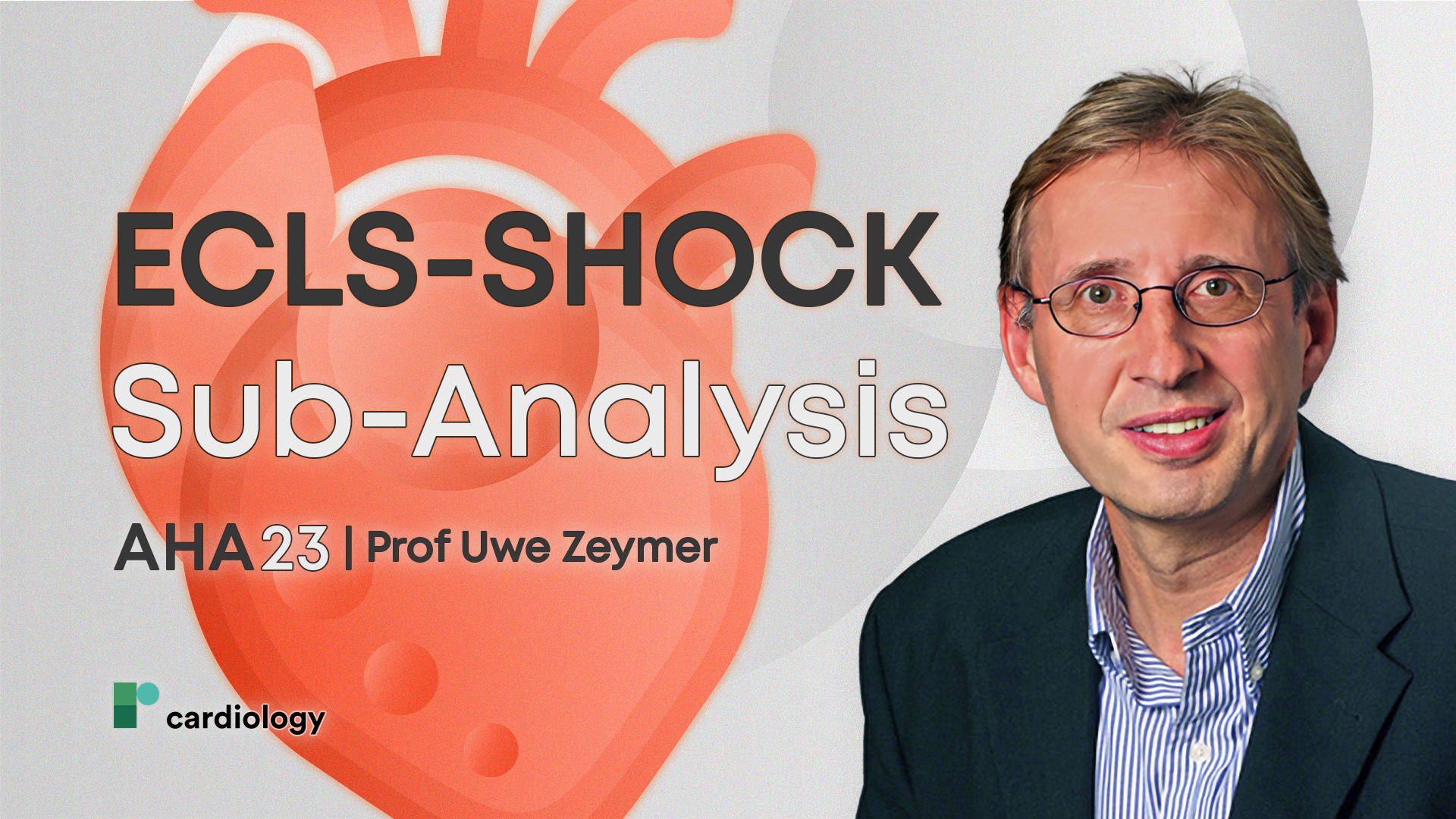 6m 55sPart 3 | Session 2 ECLS-SHOCK: Impact of Cardiac Arrest on the Efficacy of ECLS Patients Uwe Zeymer
6m 55sPart 3 | Session 2 ECLS-SHOCK: Impact of Cardiac Arrest on the Efficacy of ECLS Patients Uwe Zeymer
-
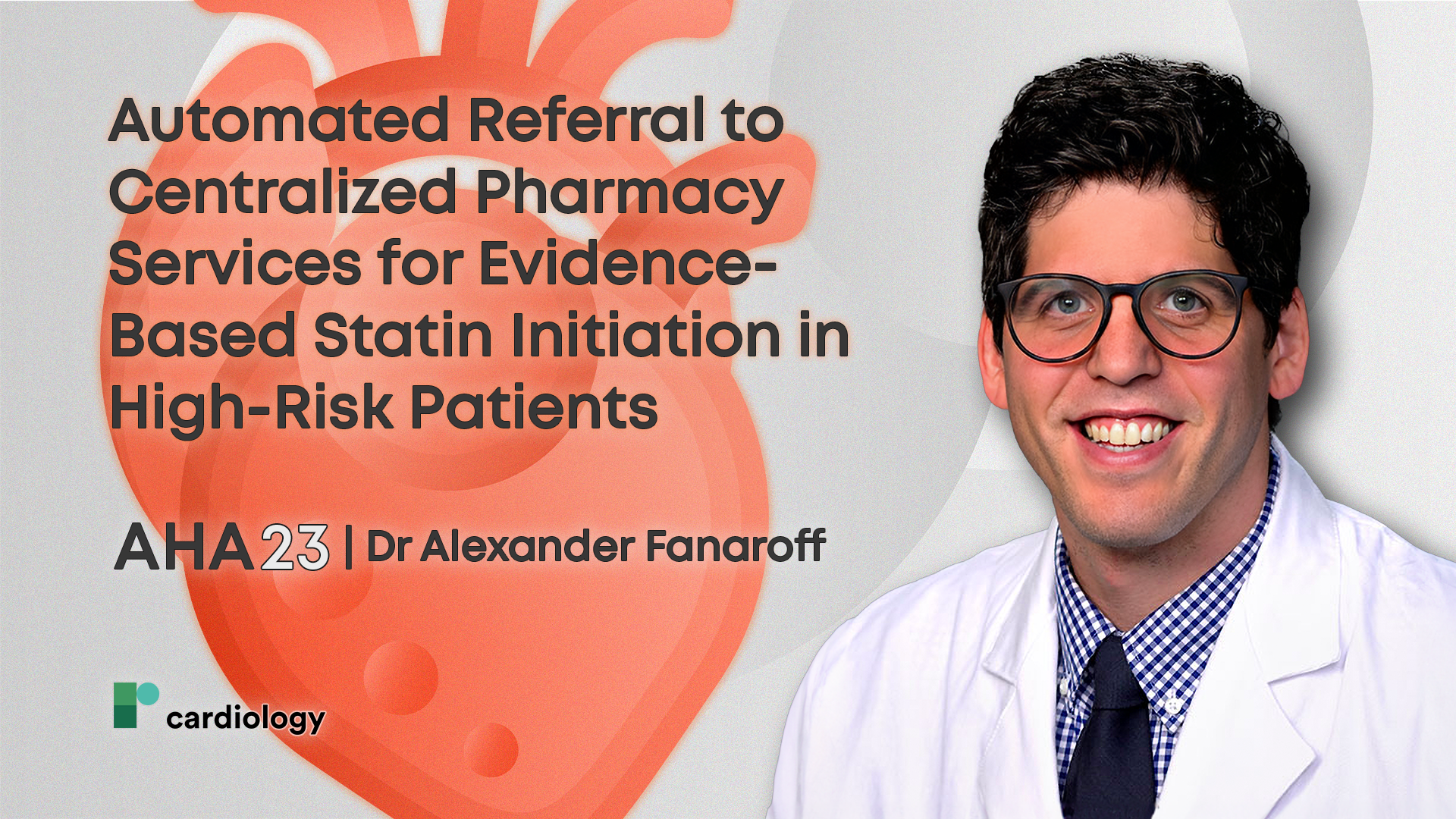 5m 4sPart 3 | Session 3 Automated Referral to Centralized Pharmacy Services for Evidence-Based Statin Initiation in High-Risk Patients Alexander Fanaroff
5m 4sPart 3 | Session 3 Automated Referral to Centralized Pharmacy Services for Evidence-Based Statin Initiation in High-Risk Patients Alexander Fanaroff
-
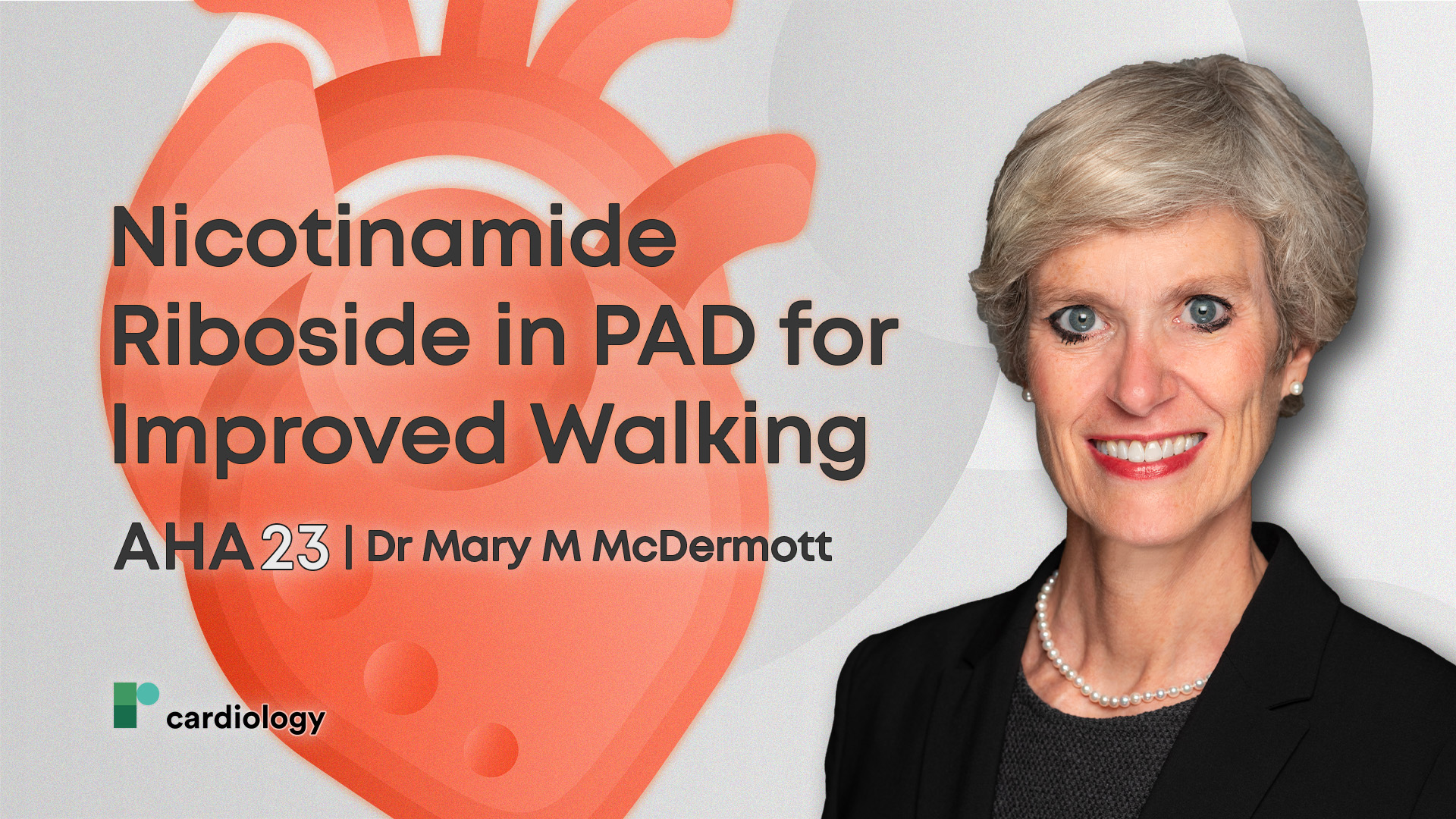 3m 54sPart 3 | Session 4 Nicotinamide Riboside in PAD for Improved Walking Mary McDermott
3m 54sPart 3 | Session 4 Nicotinamide Riboside in PAD for Improved Walking Mary McDermott
-
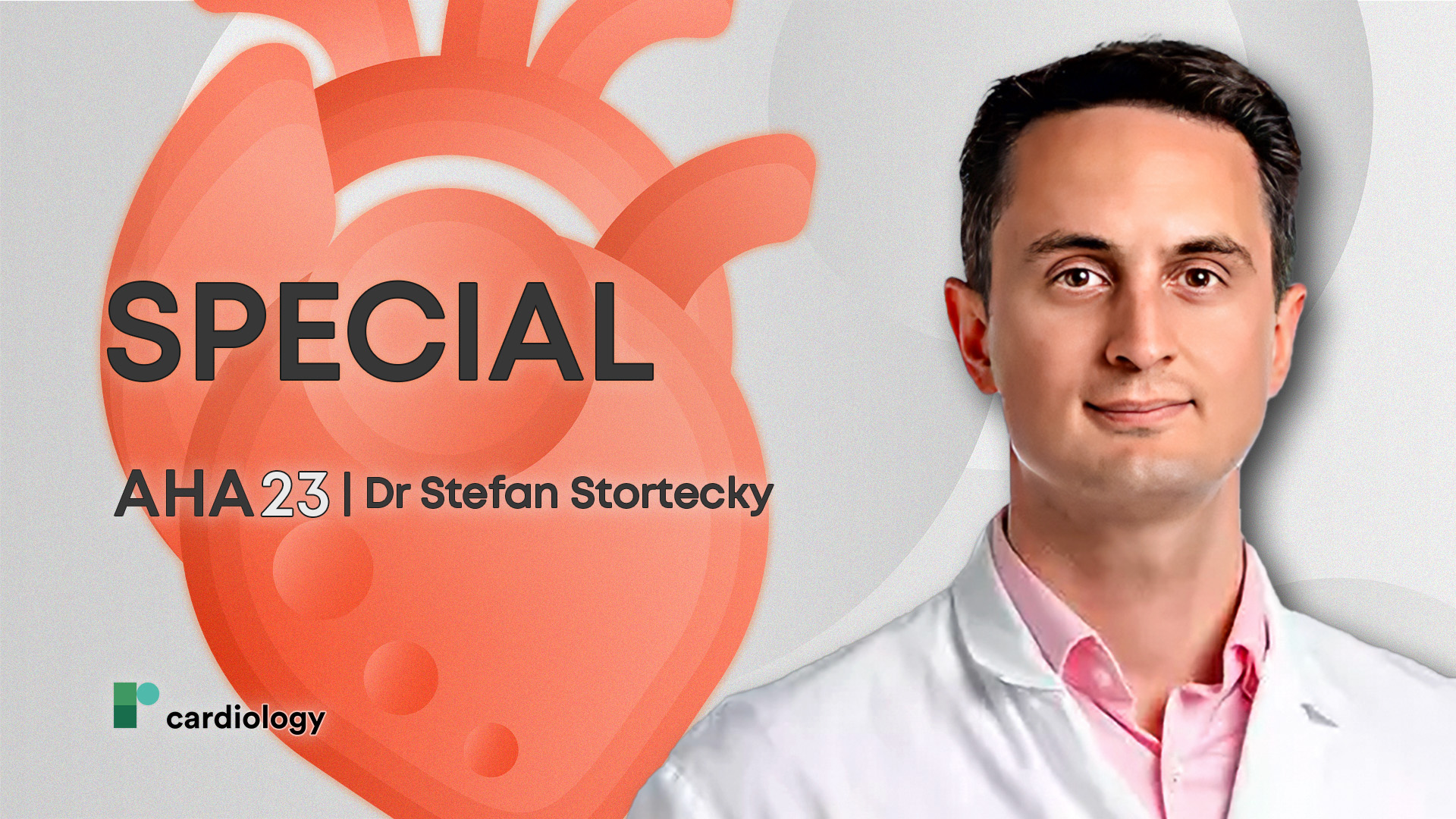 8m 27sPart 3 | Session 5 SPECIAL: Ultrasound-assisted Thrombolysis Vs Pulmonary Embolectomy for PE Stefan Stortecky
8m 27sPart 3 | Session 5 SPECIAL: Ultrasound-assisted Thrombolysis Vs Pulmonary Embolectomy for PE Stefan Stortecky
-
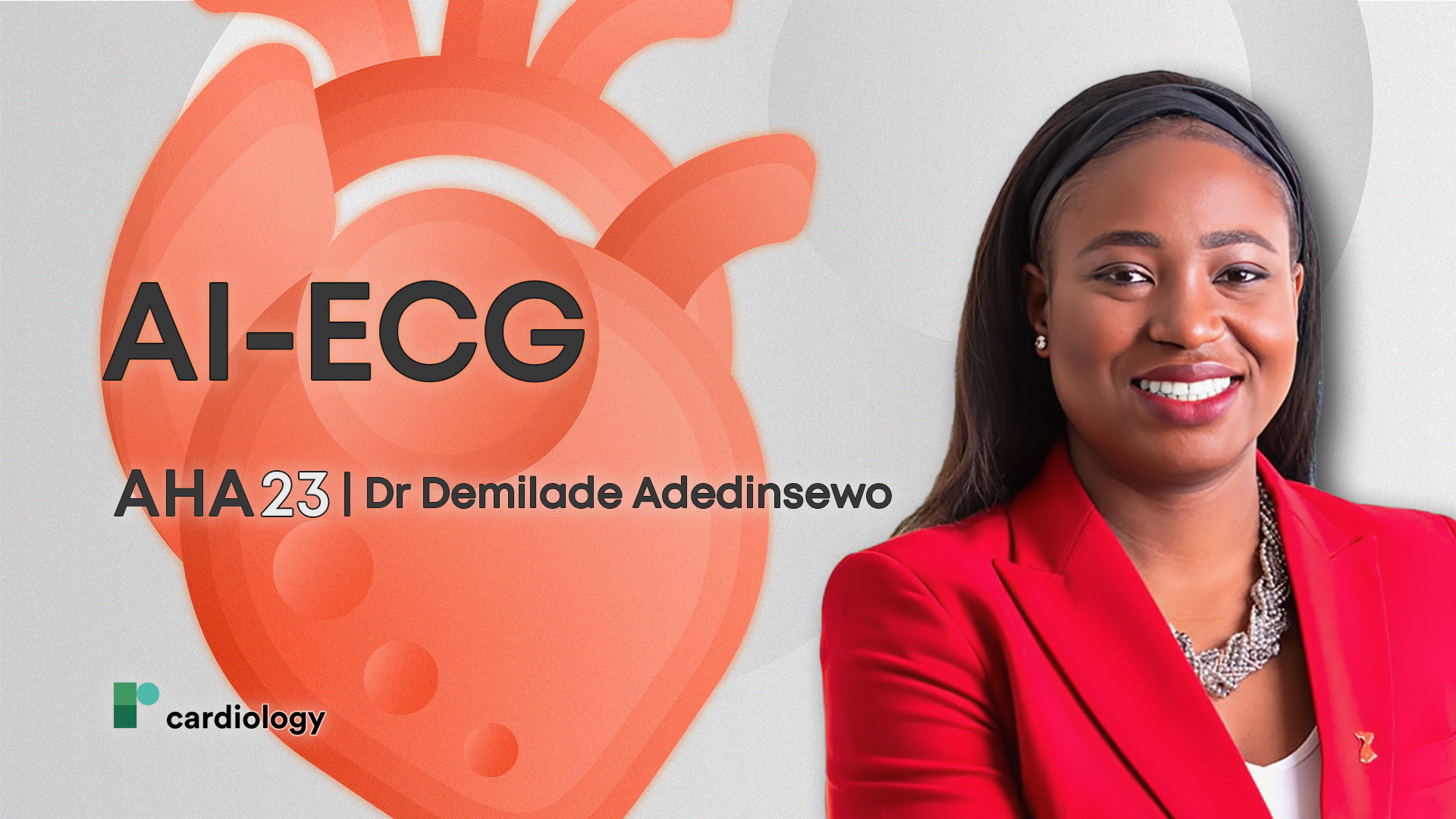 4m 59sPart 3 | Session 6 Screening for Peripartum Cardiomyopathies Using an AI Enanced Digital Stethoscope Demilade Adedinsewo
4m 59sPart 3 | Session 6 Screening for Peripartum Cardiomyopathies Using an AI Enanced Digital Stethoscope Demilade Adedinsewo
Overview
Stay up-to-date with the latest data in cardiovascular science with the help of renowned experts and emerging voices who offer concise summaries, in-depth discussions, and critical reviews to keep you informed.
In their regular View from the Thoraxcenter series, Prof Van Mieghem and Dr Daemen provide valuable insights into the most anticipated trials of AHA 23. With their keen awareness of cardiovascular innovation, they offer concise perspectives on late-breaking data.
Dr Harriette Van Spall returns with her Late-breaker Discussion series featuring ground-breaking research presented at Scientific Sessions. Join her and lead investigators as they discuss methodology, results, and impact on patient care.
Watch our Expert interviews for late-breaking science methodology, results and implications for practice and research in under 10 minutes.
Delve into the personal motivations of some of the investigators, and gain valuable insights and advice for early career researchers in our Behind the Heart series. These short videos offer an opportunity to look beyond scientific achievements and connect on a more personal level.
More from this programme
Part 1
View from the Thoraxcenter
In their regular View from the Thoraxcenter series, Prof Van Mieghem and Dr Daemen provide valuable insights into the most anticipated trials of AHA 23.
Part 2
Late-Breaker Discussions with Harriette Van Spall
Dr Harriette Van Spall, recipient of 2022's AHA Dr. Nanette K. Wenger Award, returns with her Late-breaker Discussion series featuring ground-breaking research presented at Scientific Sessions. Join her and lead investigators as they discuss methodology, results, and impact on patient care.
Part 3
Expert Interviews
Watch our Expert interviews for late-breaking science methodology, results and implications for practice and research in under 10 minutes.
Part 4
Highlights
About the episode
AHA 23 — In this brief interview, we are joined by Prof Charalambos Antoniades (Oxford University, UK) to discuss the ORFAN trial, sponsored by the University of Oxford.
ORFAN is a prospective, multicenter, observational study that collected CT scans, biological material and outcomes data to develop and validate biomarkers of cardiometabolic risk. The registry included 250000 unselected consecutive patients at participating centres. The study combines imaging data and patient demographics to improve new or existing image analysis algorithms and software tools.
Findings showed that in patients undergoing CTCA had 2x more heart attacks and cardiac deaths in those without obstructive CAD a compared to those with obstructive CAD. Measuring coronary inflammation predicts fatal and non-fatal cardiac events independent from clinical risk scores and CT interpretation. New AI-driven risk classification changes risk-driven management in 40% of patients.
Questions:
- What is the aim of the ORFAN registry?
- Can you tell us about the AI algorithm used in this study?
- What was the study design and the baseline characteristics of the study cohort?
- What are the findings?
- What conclusions can be made? What are the limitations of this registry?
- What advancements can we expect in the next 5 years as AI continues to impact the field of medicine?
Recorded on-site at AHA Scientific Sessions 2023, Philadelphia.
Support: This is an independent interview conducted by Radcliffe Cardiology.
Interviewer: Mirjam Boros
Editor: Jordan Rance
Video Specialist: Dan Brent
Faculty Biographies
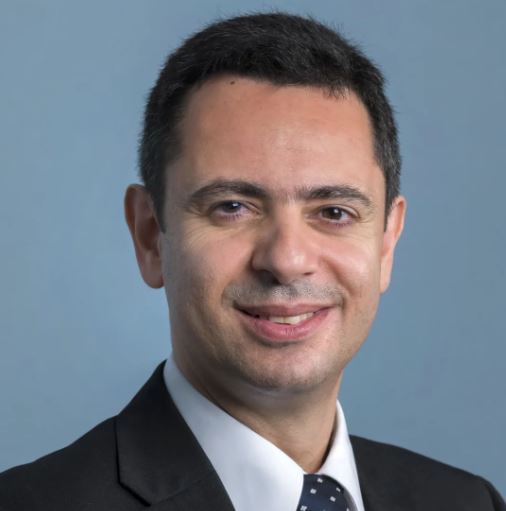
Charalambos Antoniades
Deputy Head, Division of Cardiovascular Medicine
Prof Charalambos Antoniades is a full Professor of Cardiovascular Medicine at the University of Oxford, and a Consultant Cardiologist in Oxford University Hospitals.
Prof Antoniades graduated Medicine in Athens Medical School a with hons (top 3%) in 2000 and was awarded his PhD title with hons on the genetics of premature myocardial infarction. He won multiple prestigious international Young Investigator award competitions and has published 250 scientific papers and in 2016 he received the outstanding achievement award of the European Society of Cardiology. He is also deputy editor of Cardiovascular Research, editor of British Journal of Pharmacology and associate editor of other journals. He is board member of the British Atherosclerosis Society and one of the founders of the ESC Scientists of Tomorrow.
Prof Antoniades is founder and Chief Scientific Officer of Caristo Diagnostics, a university of Oxford spinout company commercialising novel CT-derived biomarkers…








Comments